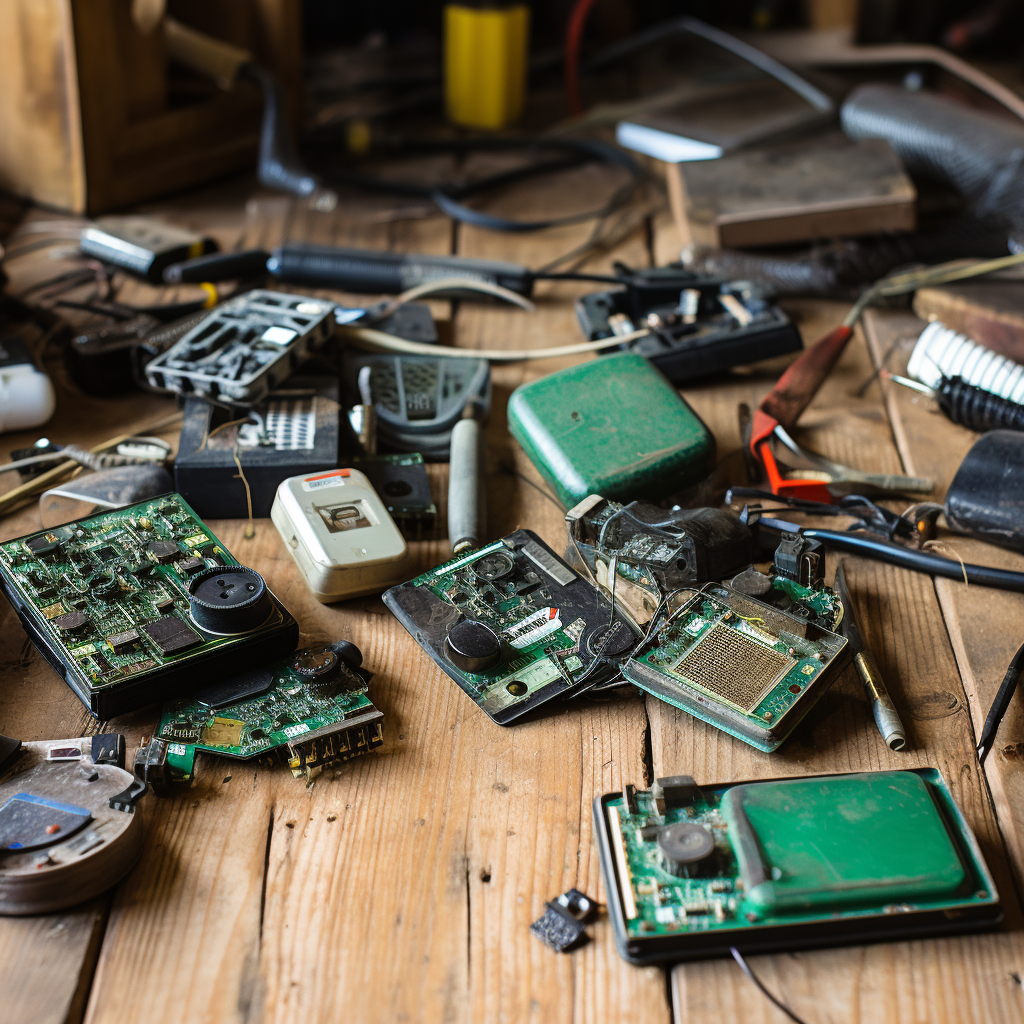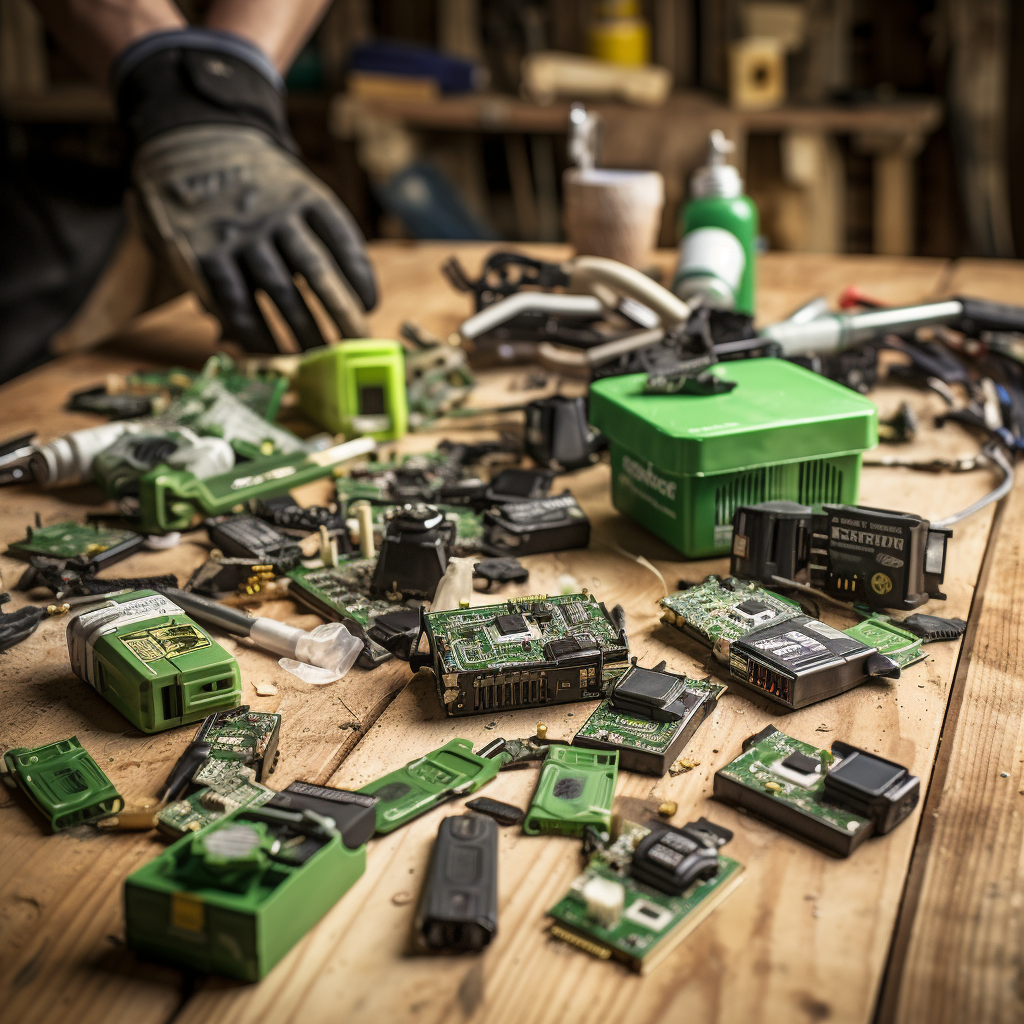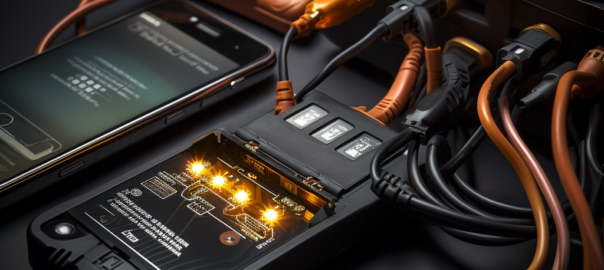In today’s rapidly advancing technological era, AC adapters play an indispensable role. Powering everything from our computers to home appliances, these adapters are an unseen but vital aspect of our daily lives. Yet, like all electronic accessories, AC adapters have a finite lifespan. When they finally succumb to wear and tear or technological obsolescence, a critical question emerges: How do we dispose of them responsibly?
Tossing them in the trash might seem like the easy answer, but such habits contribute to an escalating electronic waste crisis. In the face of growing environmental challenges, it’s paramount that both industries and consumers recognize the importance of eco-friendly disposal and recycling methods. This article aims to shed light on the environmental impacts of improperly discarded AC adapters and guide readers toward sustainable solutions. Through responsible practices, we can reduce our carbon footprint, conserve resources, and ensure that our planet remains habitable for future generations.
Contents
The Environmental Impact of Old AC Adapters
Electronic accessories, such as AC adapters, may seem innocuous due to their small size. However, when millions of these items are discarded improperly, they pose significant environmental hazards.
- E-Waste Dilemma: Electronic waste, often shortened to e-waste, is one of the fastest-growing segments of our nation’s waste stream. AC adapters, made up of a mix of plastic, metal, and sometimes hazardous materials, contribute to this looming problem.
- Toxic Substance Release: AC adapters can house harmful substances including lead, cadmium, and brominated flame retardants. In landfills, these can seep into the ground, contaminating soil, water sources, and eventually our food chain.
- Wasted Resources: Every AC adapter thrown away signifies missed opportunities for recycling. The metals and plastics in these devices, when reclaimed, could reduce the demand for virgin resources, subsequently decreasing environmental extraction damages.

Methods of Eco-friendly Recycling
Merely understanding the problem isn’t enough; actionable solutions are essential. Recycling is one such potent solution for the challenge posed by old AC adapters.
Table 1: Common Materials Found in AC Adapters and Their Recyclable Status
| Material | Recyclable Status | Common Uses When Recycled |
|---|---|---|
| Copper | Highly recyclable | Wiring, new electronic components |
| Plastic | Recyclable, depending on type | Reformed plastic products, insulation |
| Aluminum | Highly recyclable | Beverage cans, foils, electronic components |
| Silicon | Limited recyclability | Solar panels, certain electronics |
| Lead | Requires special handling | Batteries, protective shields |
Specialized e-waste recycling facilities can adeptly handle AC adapters. They have methods to efficiently separate, purify, and reintroduce these materials into the production cycle, turning potential waste into valuable resources. By actively choosing to recycle, consumers and businesses can divert these items from landfills, curbing environmental damage.
The Proper Disposal Techniques
Not all adapters can be recycled, and in such cases, proper disposal is crucial to minimize environmental harm.
Table 2: Comparison of Eco-friendly Disposal Methods
| Method | Effectiveness | Environmental Impact |
|---|---|---|
| Landfill | Low | High, due to leaching of toxic materials |
| Incineration | Medium | Medium, potential for harmful emissions if not properly managed |
| Specialized E-waste disposal | High | Low, tailored to handle electronic components |
When recycling isn’t an option, turning to specialized e-waste disposal facilities is recommended. These centers are designed to manage and neutralize the environmental threats posed by electronic accessories.
Tips for Consumers: Choosing and Using Adapters Responsibly
As technology becomes increasingly integral to our daily routines, the devices we rely on—and the accessories that power them—hold significant sway over our environmental footprint. AC adapters, though small, are a crucial piece of this technological puzzle. By making conscious choices regarding these components, consumers can play a pivotal role in promoting sustainability. Here are some actionable insights for responsible adapter use:
- Quality Over Quantity: A well-made AC adapter may come with a slightly higher price tag, but the longevity it offers can drastically reduce the need for frequent replacements. Not only does this mean fewer adapters ending up as waste, but it also ensures safer, more efficient energy consumption.
- Embrace Universality: Universal adapters are versatile, designed to power a variety of devices. By adopting such multifunctional accessories, you can reduce the overall number of adapters you own, streamlining your electronic collection and minimizing waste.
- Repair Before Replacement: If an adapter starts to falter, consider repairing it before heading to the store for a replacement. Often, a minor issue like a frayed cable can be fixed, granting your adapter a renewed lifespan.
Table: Potential Lifespan Extension Through Repairs
| Common Adapter Issue | Potential Lifespan Extension if Repaired |
|---|---|
| Frayed Cable | 1-2 years |
| Loose Connector | 2-3 years |
| Faulty Internal Wiring | 1-2 years |
- Second-Hand Doesn’t Mean Second-Rate: If you’re in the market for an adapter, consider buying second-hand or refurbished models. They can be just as effective as brand-new counterparts and come with the added benefit of promoting recycling and reducing production waste.
- Mindful Disposal: When it’s genuinely time to bid farewell to an old adapter, ensure you’re doing so responsibly. Seek out local e-waste recycling centers or donation points. Some retailers even offer trade-in or recycling programs.
- Stay Updated: As environmental guidelines and technological standards evolve, it’s beneficial to stay informed. Regularly checking for updates on e-waste handling, and understanding the latest in adapter technology, ensures that you’re always making the most eco-friendly choices.
In a world teetering on the edge of an e-waste crisis, every small step matters. By following these tips, consumers can ensure that their choices regarding AC adapters align with a vision of a cleaner, greener future.

Conclusion and Future Outlook
In an age of rapid technological advancements, the environmental repercussions of e-waste cannot be ignored. AC adapters, while small in stature, contribute notably when discarded irresponsibly. By understanding the environmental impact and adopting eco-friendly recycling and disposal methods, we can take steps toward a more sustainable future.
As awareness grows, industries are also playing their part. Many electronics manufacturers are now designing products that are easier to recycle, using fewer hazardous materials, and offering take-back programs. These initiatives, combined with responsible consumer behavior, pave the way for a future where technology and environmental responsibility coexist harmoniously.
It’s not merely about safeguarding our planet for ourselves but ensuring that future generations inherit a world where technology aids sustainability, rather than detracting from it. Each AC adapter responsibly disposed of might seem like a drop in the ocean, but collectively, our efforts can lead to a wave of change.
FAQs
- Why is e-waste a concern?
- E-waste contains potentially hazardous materials that can harm the environment and human health if not properly disposed of.
- Can all AC adapters be recycled?
- Most can be, but it’s essential to check with local recycling facilities or the manufacturer’s guidelines.
- How do universal adapters contribute to reducing e-waste?
- Universal adapters can power multiple devices, meaning fewer adapters are produced, bought, and eventually discarded.
- What are the environmental benefits of buying second-hand adapters?
- Purchasing second-hand reduces the demand for new production, conserving resources, and reducing waste associated with manufacturing.
- How can I find e-waste recycling centers near me?
- Many municipalities provide e-waste collection services. You can also search online or inquire with local electronic retailers.










